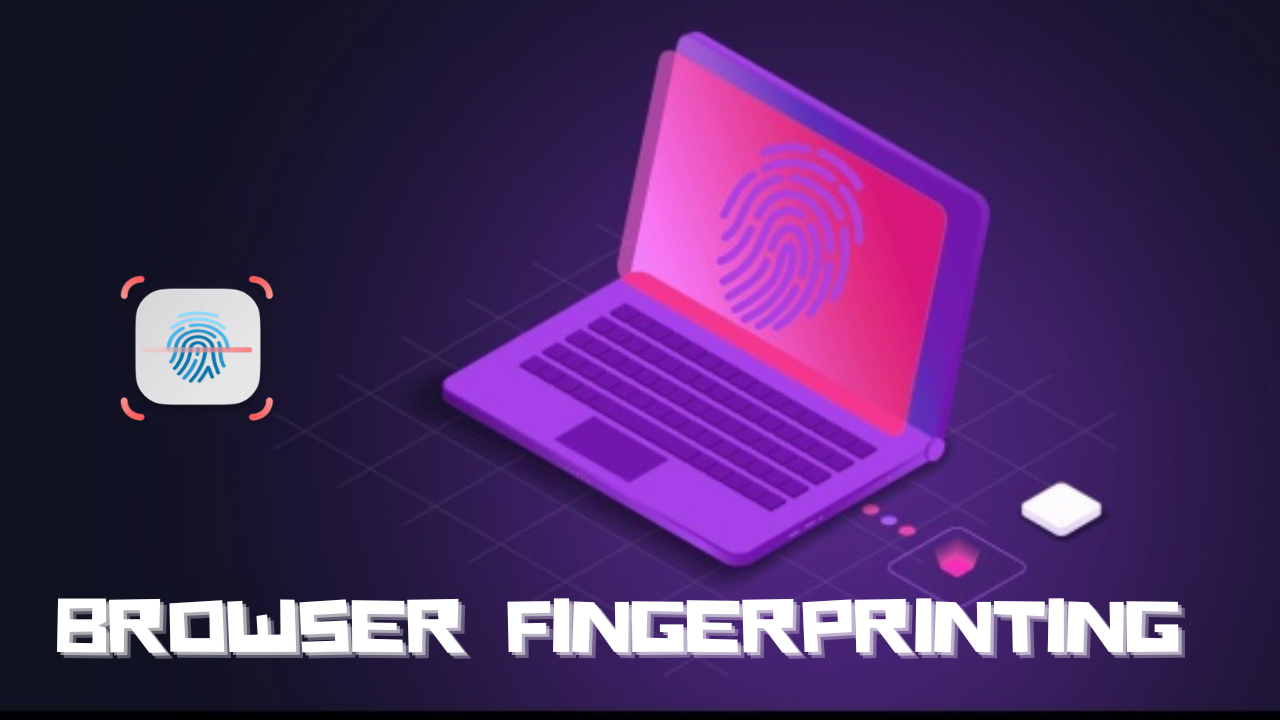In this era of rapid technological advancement and interconnectedness, the significance of cybersecurity has reached unprecedented heights. As organizations grapple with the increasing frequency and complexity of cyber threats, the need for skilled professionals to safeguard sensitive information and defend against malicious attacks has never been more critical.
However, for freshers venturing into the realm of cybersecurity, the path to landing that coveted job can be fraught with challenges. The paradox lies in the fact that while the demand for experienced cybersecurity experts continues to soar, freshers often find themselves caught in a catch-22 situation due to their limited work experience.
In this article, we will delve into the reasons behind why freshers face difficulties in securing jobs in the cybersecurity field. We will explore the industry’s preference for experienced professionals, the mismatch between skill sets and job requirements, the importance of certifications, limited networking opportunities, and the competitive nature of the job market.
But it’s not all doom and gloom. We will also explore strategies that freshers can employ to increase their job prospects. From gaining practical experience to building a strong foundation of technical skills, we will discuss actionable steps to enhance their employability. Moreover, we will emphasize the significance of networking, personal projects, and showcasing contributions to stand out in the competitive landscape.
By addressing these challenges head-on and embracing the opportunities available, freshers can carve a successful path in the cybersecurity domain. Let’s explore the reasons behind the job market paradox for freshers and discover the strategies that can help them overcome these obstacles and thrive in the exciting world of cybersecurity.
The Experience Gap: Why Employers Prefer Experienced Candidates in Cyber Security
In my observation, one of the primary reasons freshers struggle to secure jobs in the field of cybersecurity is the prevalent preference among employers for experienced candidates. Employers often seek individuals who have already amassed a certain level of practical knowledge and skills through their previous work in the industry. This creates a significant experience gap that freshers find challenging to bridge.
Employers prioritize experienced candidates for several reasons. Firstly, cybersecurity is a complex and rapidly evolving field where even a small oversight can have far-reaching consequences. By hiring candidates with prior experience, employers can reduce the risk of potential errors and ensure a certain level of proficiency in handling security challenges.
Secondly, experienced candidates bring a track record of successful projects and incidents they have resolved. This track record provides employers with a sense of confidence in the candidate’s ability to handle real-world cybersecurity scenarios. Freshers, on the other hand, lack such evidence, making it harder for employers to assess their competence and reliability.
Additionally, experienced professionals often possess a deep understanding of industry best practices, regulations, and compliance standards. This familiarity with the intricacies of cybersecurity frameworks allows them to hit the ground running and contribute effectively to organizational security strategies. Freshers, with their limited exposure, may require more training and time to gain a similar level of understanding and adaptability.
While the preference for experienced candidates is understandable from an employer’s perspective, it creates a significant hurdle for freshers seeking to enter the cybersecurity field. However, this does not mean freshers are entirely devoid of opportunities. By focusing on building a strong foundation of knowledge, acquiring relevant certifications, and gaining practical experience through internships, projects, or volunteering, freshers can gradually bridge the experience gap and become more competitive candidates in the cybersecurity job market.
The Importance of Certifications and Qualifications in Landing a Job in Cyber Security

From my understanding, certifications and qualifications play a crucial role in landing a job in the field of cybersecurity. In an industry where staying updated with the latest technologies, methodologies, and security practices is vital, certifications provide a standardized way to demonstrate one’s expertise and commitment to professional growth.
Employers value certifications as they serve as tangible proof of an individual’s knowledge and skills in specific areas of cybersecurity. These certifications are often awarded by reputable organizations and require candidates to pass rigorous examinations that test their understanding and proficiency. By holding relevant certifications, freshers can showcase their dedication to mastering essential cybersecurity concepts and techniques.
Certifications also serve as a means to validate one’s qualifications in specialized domains within cybersecurity. For example, certifications such as Certified Information Systems Security Professional (CISSP), Certified Ethical Hacker (CEH), or Certified Information Security Manager (CISM) are highly regarded and recognized across the industry. These certifications demonstrate expertise in areas like network security, ethical hacking, or information security management, respectively.
Moreover, certifications can compensate for the lack of professional experience that freshers may face. While freshers may not have extensive work experience, acquiring certifications can fill the gap and provide employers with confidence in their capabilities. Certifications act as a way to level the playing field, showcasing a fresher’s dedication, knowledge, and potential.
It is essential for freshers to research and identify the certifications that align with their career aspirations and the specific requirements of the cybersecurity roles they aim for. By obtaining these certifications, freshers can enhance their resumes, make themselves more marketable, and demonstrate their commitment to excellence in the field.
However, it’s important to note that certifications alone may not guarantee a job. They should be complemented with practical experience and a solid understanding of foundational concepts. Freshers should aim to strike a balance between acquiring certifications and gaining hands-on experience through internships, projects, or even participating in cybersecurity competitions. This combination of certifications and practical skills will significantly enhance their chances of securing a job in the competitive cybersecurity industry.
Certifications and qualifications are highly valued in the cybersecurity field as they provide a standardized measure of an individual’s knowledge and expertise. They serve as tangible proof of one’s dedication to professional development and can compensate for the lack of experience. By acquiring relevant certifications and gaining practical experience, freshers can significantly increase their chances of landing a job in cybersecurity.
The Need for Practical Skills and Hands-on Experience in the Field of Cyber Security

The field of cybersecurity places great emphasis on practical skills and hands-on experience. While theoretical knowledge and certifications are valuable, they must be complemented by the ability to apply that knowledge effectively in real-world scenarios. Employers in the cybersecurity industry seek candidates who can demonstrate their practical skills and show a track record of successfully addressing security challenges.
Cybersecurity is a dynamic field that requires professionals to adapt to ever-evolving threats and technologies. The ability to think critically, analyze complex situations, and devise appropriate strategies is crucial. Practical skills such as vulnerability assessment, penetration testing, incident response, and secure coding are highly sought after by employers.
Hands-on experience allows individuals to develop a deeper understanding of cybersecurity concepts and tools, as well as gain insights into the practical implications of implementing security measures. It enables freshers to bridge the experience gap, as it provides them with tangible examples of their ability to handle real-world scenarios.
Internships, cooperative education programs, and practical projects are excellent ways for freshers to gain hands-on experience in the field. These opportunities allow them to apply their knowledge in practical settings, work alongside experienced professionals, and develop a range of skills that are directly applicable to cybersecurity roles.
Participating in cybersecurity competitions and challenges can also provide valuable practical experience. These events often simulate real-world scenarios, allowing participants to test their skills, collaborate with others, and learn from their successes and failures.
Furthermore, engaging in open-source projects, contributing to security communities, and participating in online forums and discussion groups can provide freshers with opportunities to enhance their practical skills. These activities allow them to learn from experienced professionals, share knowledge, and stay up-to-date with the latest trends and techniques in cybersecurity.
By acquiring practical skills and hands-on experience, freshers can demonstrate their ability to apply their knowledge effectively and solve real-world security problems. Employers are more likely to consider candidates who can showcase their practical expertise, as it instills confidence in their ability to contribute to organizational security efforts.
While certifications and qualifications provide a foundation, it is the combination of theoretical knowledge and practical skills that makes freshers stand out in the competitive job market. By actively seeking opportunities to gain hands-on experience and continually developing their practical skills, freshers can significantly enhance their chances of securing a job in the dynamic field of cybersecurity.
The Role of Networking and Building Professional Connections for Freshers in Cyber Security

Networking and building professional connections play a crucial role in the career progression of freshers in the field of cybersecurity. While technical skills and qualifications are essential, establishing and nurturing relationships within the industry can open doors to valuable opportunities and accelerate one’s career growth.
Networking provides freshers with a platform to connect with experienced professionals, industry leaders, and potential mentors. These connections can offer insights into the industry, provide guidance on career paths, and offer valuable advice based on their own experiences. By building relationships with established professionals, freshers can tap into their knowledge and learn from their expertise.
Attending industry conferences, workshops, and seminars provides freshers with excellent networking opportunities. These events bring together professionals from various cybersecurity domains, allowing freshers to meet potential employers, colleagues, and mentors. Engaging in meaningful conversations, sharing ideas, and expressing genuine interest in the field can help create lasting connections.
Active participation in online communities and forums dedicated to cybersecurity can also be immensely beneficial. These platforms provide freshers with the chance to interact with professionals from different parts of the world, exchange knowledge, seek guidance, and showcase their enthusiasm for the field. Building a strong online presence and engaging in thoughtful discussions can help establish credibility and attract attention from industry professionals.
Additionally, freshers can consider joining professional organizations and associations focused on cybersecurity. These organizations often host networking events, webinars, and workshops that facilitate connections and provide opportunities for professional growth. Becoming a member of such organizations not only demonstrates a commitment to the field but also offers access to valuable resources, job boards, and mentorship programs.
Furthermore, leveraging social media platforms like LinkedIn can be a powerful tool for networking in the cybersecurity field. Creating a compelling profile that highlights skills, certifications, and projects, and actively engaging with relevant content can help freshers expand their network and attract the attention of recruiters and industry professionals.
It’s important for freshers to approach networking with a genuine intent to learn and contribute to the cybersecurity community. Building professional connections is a two-way street, and offering assistance or sharing knowledge with others can help forge meaningful relationships.
By actively networking and building professional connections, freshers can gain industry insights, uncover hidden job opportunities, receive mentorship, and establish a strong professional reputation. These connections can prove invaluable throughout their careers, providing ongoing support, guidance, and potential collaborations.
Lack of Industry Connections and Networking Opportunities for Freshers
The lack of industry connections and networking opportunities is a significant challenge that freshers in the cybersecurity field often face. As a newcomer to the industry, it can be challenging to find avenues to connect with experienced professionals, potential mentors, and employers. This lack of connections can hinder their ability to gain insights into the industry, access job opportunities, and receive guidance on their career path. Let’s explore some of the reasons behind this issue and potential solutions to overcome it:
- Limited Professional Experience: Freshers typically lack the professional experience that seasoned cybersecurity professionals possess. Without a track record or previous work in the industry, it becomes harder for them to establish meaningful connections.
- Small Social and Professional Circles: Many freshers might not have extensive social or professional networks within the cybersecurity domain. They might come from different educational backgrounds or have limited exposure to the industry.
- Limited Access to Industry Events: Industry events, conferences, and networking seminars can be expensive to attend, making it challenging for freshers, especially those on tight budgets, to participate and meet industry professionals.
- Online Barriers: Building connections online can be daunting for freshers who are not familiar with navigating cybersecurity-specific platforms or hesitant to engage with strangers on social media.
Solutions to Overcome the Lack of Industry Connections:
- Engage in Cybersecurity Communities: Join online forums, discussion groups, and cybersecurity-focused social media channels to interact with professionals, share ideas, and seek advice. Actively participate in discussions to establish yourself as an enthusiastic learner.
- Attend Virtual Events: Many industry events have moved to virtual formats, making them more accessible. Take advantage of webinars and virtual conferences to gain knowledge, connect with experts, and network with fellow participants.
- Seek Internships and Volunteering Opportunities: Internships and volunteering allow freshers to work alongside experienced professionals and build connections within the organization and industry. These experiences can lead to valuable recommendations and referrals.
- Participate in Capture The Flag (CTF) Competitions: Engage in cybersecurity competitions like CTFs, where participants solve challenges to test their skills. These events often attract professionals and offer networking opportunities.
- Leverage LinkedIn: Create a professional LinkedIn profile highlighting your skills, projects, and certifications. Connect with professionals in the industry, send personalized messages, and express your interest in learning from them.
- Reach Out to Alumni and Professors: Connect with alumni from your educational institution who have entered the cybersecurity field. They can provide insights, advice, and possibly introduce you to their professional network.
- Join Cybersecurity Organizations: Consider becoming a member of cybersecurity-focused organizations and clubs. These groups often hold networking events, seminars, and workshops.
- Attend Local Meetups: Check if there are local cybersecurity meetups or gatherings in your area. These events offer a more intimate setting for networking and connecting with like-minded individuals.
By actively seeking networking opportunities, engaging in professional communities, and displaying genuine enthusiasm for the cybersecurity field, freshers can begin to build their industry connections gradually. Remember that networking is a continuous process, and building relationships takes time, but with persistence and effort, freshers can overcome the lack of industry connections and find their path in the dynamic world of cybersecurity.
Conclusion
In conclusion, based on my understanding, breaking into the field of cybersecurity as a fresher requires persistence and a commitment to continuous learning. The challenges faced by freshers, such as the experience gap, the importance of certifications, the need for practical skills, and the lack of industry connections, can be overcome with dedication and a proactive approach.
Success in the cybersecurity field does not come overnight. It requires a constant drive to expand knowledge, stay updated with emerging threats and technologies, and acquire relevant certifications and qualifications. Freshers should focus on building a strong foundation of theoretical knowledge while actively seeking opportunities to gain practical experience through internships, projects, and cybersecurity competitions.
Networking and building professional connections are equally crucial. By engaging with industry professionals, participating in online communities, attending events, and leveraging social media platforms, freshers can expand their network, receive mentorship, and access hidden job opportunities. It is essential to approach networking with a genuine intent to learn, contribute, and foster meaningful relationships within the cybersecurity community.
Persistence is key in overcoming the challenges and setbacks that may arise along the way. Rejections and initial struggles should be seen as learning opportunities rather than deterrents. It is important to remain resilient, adapt to changes in the industry, and continuously seek self-improvement.
As a fresher in the field of cybersecurity, remember that success is not solely defined by landing a job but by the journey of growth and development. Embrace a mindset of continuous learning, explore different areas of cybersecurity, and seek out mentors who can guide you along the way. Stay curious, stay determined, and remain adaptable in the face of evolving threats and technologies.
Ultimately, breaking into the field of cybersecurity as a fresher requires persistence, continuous learning, and a proactive approach to acquiring knowledge, gaining experience, and building professional connections. With dedication and perseverance, freshers can carve a successful path in the exciting and ever-expanding world of cybersecurity.








